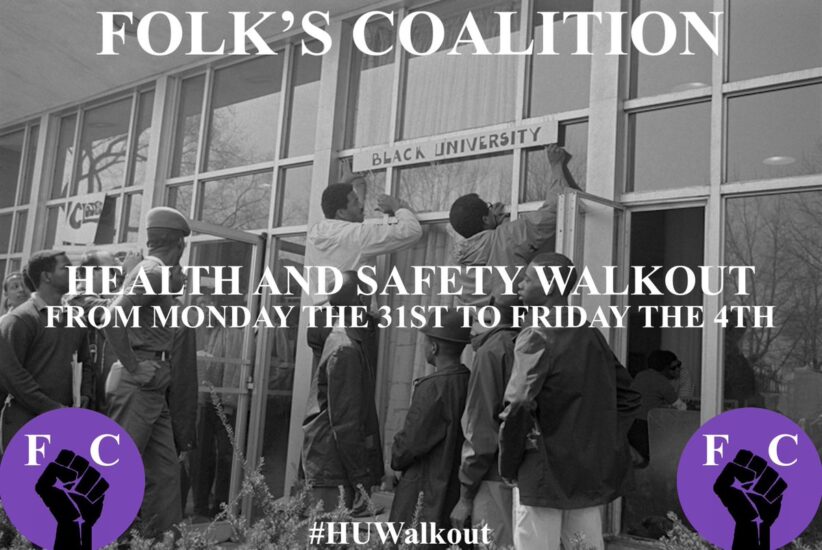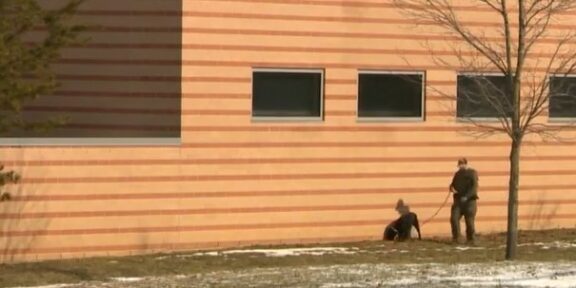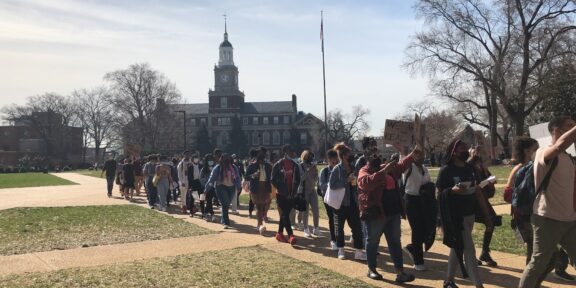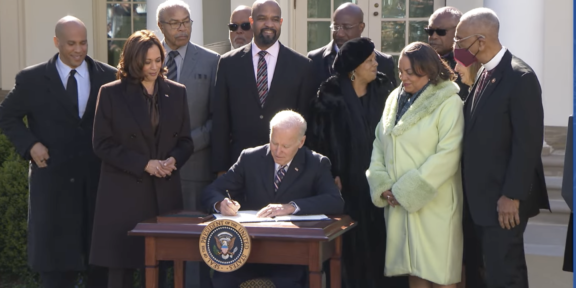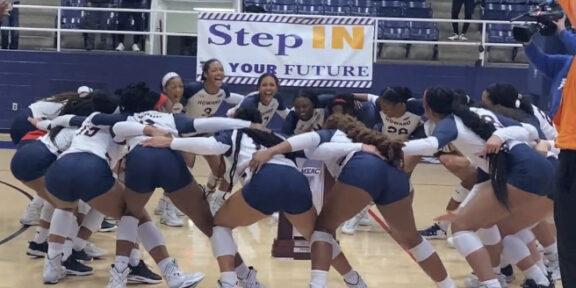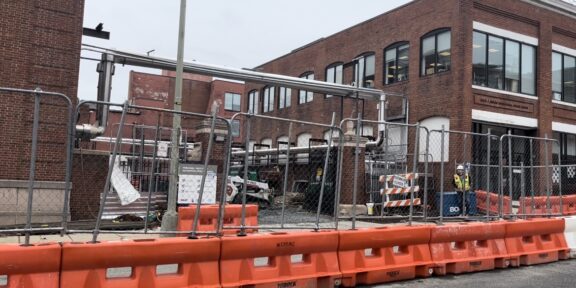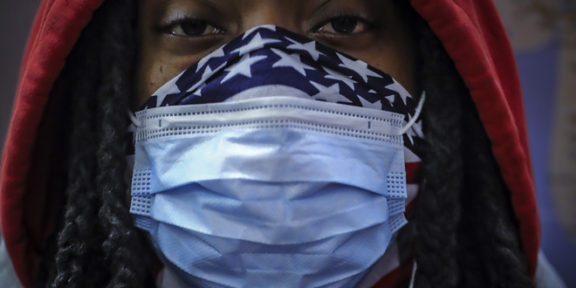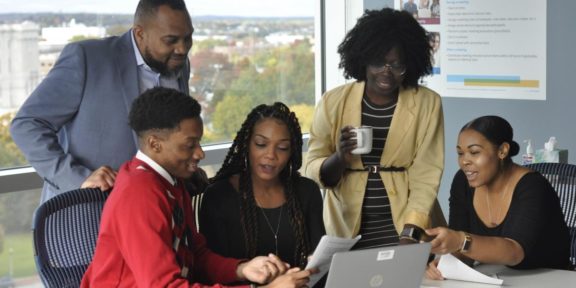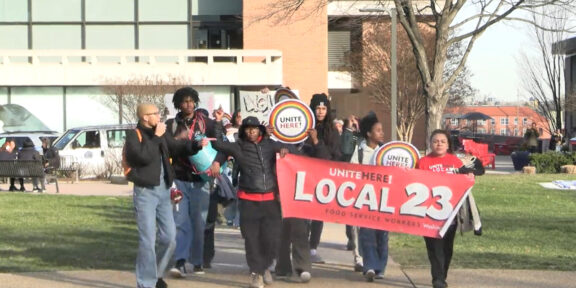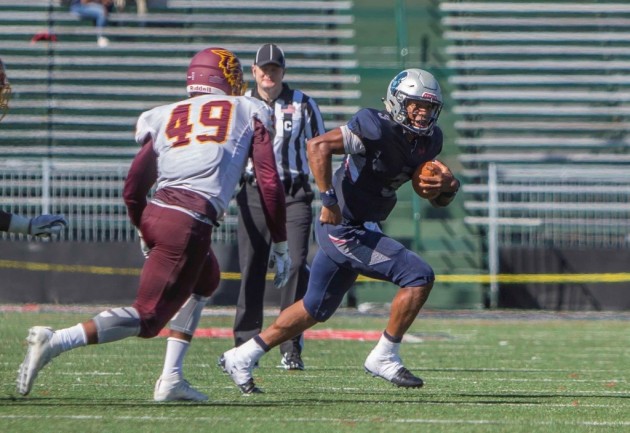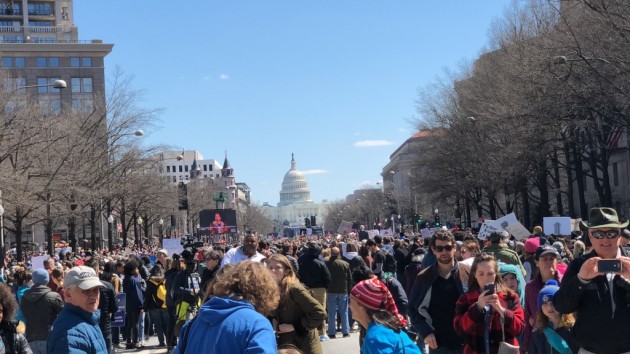By Chanel Cain
Howard University News Service
Nearly two years into the COVID-19 pandemic, Howard University has switched back to a nearly full in-person modality for the spring 2022 semester. The rise of the omicron variant prompted the university to push the start of the semester back a week to ensure students had enough time to get boosters. Despite this, some students and faculty still have about returning fully to in-person classes. This is what sparked the Folk’s Coalition to organize a walkout.
The plan, originally stemming from conversations online as the semester began, was for participating students and faculty members to abstain from going to classes throughout this week from Monday to Friday. The main concerns raised were crowded classrooms that did not allow for social distancing and the lack of choice on behalf of both professors and students to determine the modality they are most comfortable with.
With back-to-back bomb threats at Howard and other HBCUs coinciding with the start of the walkout, it’s difficult to determine whether students and faculty are missing class because of the protest or the bomb threats.
The Administration’s made their moves, only further alienating the students and faculty. It’s time to make our move.#HUWalkout 31st to the 4th. pic.twitter.com/AZEwK6tqmR
— Folk’s Coalition (@CoalitionFolk) January 30, 2022
Sean Pears, a lecturer at Howard, began his time here teaching virtually during the fall 2020 semester. So far he and his students have enjoyed being back in person.
“It’s kind of a drain, frankly, to stare at the screen, you know, day after day after day.” Pears said. “And so I was very happy to go back in person, but I know that, you know, that’s also my own experience.”
However, he did acknowledge the demand for online classes on the part of both students and faculty. As a member of the HU Faculty Senate, he supported a resolution to allow professors to choose the modality of their courses.
Marcus Alfred, chair of the Faculty Senate, supports this sentiment. While the senate had not taken an official position on the walkout, Alfred said, “the senate has continuously championed and recommended that safety and maximum flexibility be prioritized for faculty while adhering to CDC guidelines to the HU administration and board.”
“The requests of the Folks Coalition seem to align with this recommendation,” Alfred said during email correspondence.
The university declined to comment about the walkout, said Frank Tramble, vice president of communications.
The Folk’s Coalition is an organization of both students and faculty that works to make the campus “freer and more empowering for the students, staff and faculty that take part in it,” explains member Cephas Silvera, a junior political science major at Howard. Beyond the main concerns raised by the organization, Silvera worried about maintaining the health of everyone’s families.
Silvera’s father has heart problems. “On top of that, he works at a hospital. If I get COVID and say I’m asymptomatic, and I spread it to him and say it goes asymptomatic for him too, how many people does he come into contact with in the hospital?” Silvera asked. “I think about it every day.”
Howard requires weekly testing and mask wearing to be on campus, as it did last semester, and as of Jan 31, all eligible students needed to submit proof of their booster shots.
The walk out is planned to end on Friday, the same day as the “We Shall Have to Be United” event hosted by several faculty members. The virtual teach-in plans to serve as hub for conversation surrounding the Blackburn Takeover from the previous semester, and the struggles of non-tenure track faculty as they try to unionize.
this coming Friday, in support of our non-tenure track faculty and their unionization struggle, along with others I’ll be talking about MLK and his connection to the Black University concept. No registration required, just save the flyer so you can join the teach-in. pic.twitter.com/ZGus3EKNAs
— Josh Myers (@ddhewty) January 30, 2022
“The faculty have been working with students, alums, parents, and friends of the university to push the HU board and administration to make better decisions,” Alfred said of the event. “We’ve also made it clear to the board that until there are changes in the HU board and the HU administrative leadership, they can expect more poor administrative decisions with escalating severity.”
In the wake of the Blackburn Takeover, the ever-changing nature of the COVID-19 pandemic, and students’ personal needs, Silvera worries for those who choose to walk out and those who may want to, but choose not to.
“But, you know, we have to,” he said. “We have to, we have to speak out. Can’t just let this slide.”
Chanel Cain is a reporter and regional bureau chief for HUNewsService.com.

